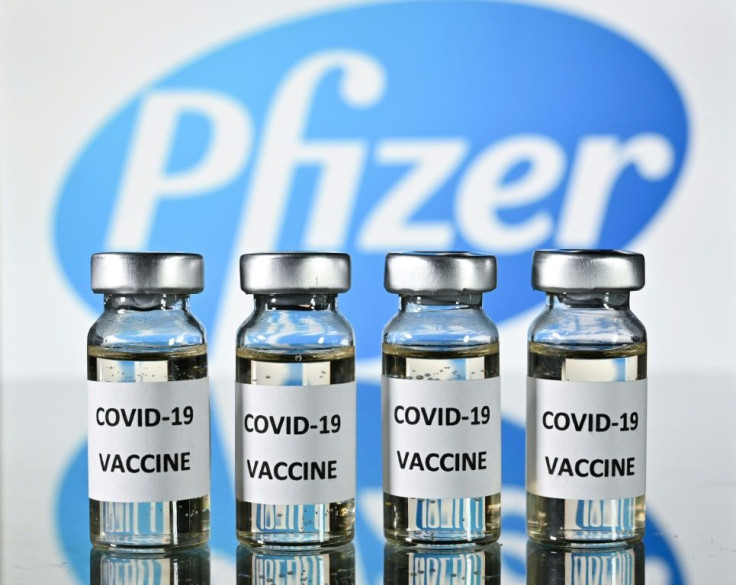Shocking Pfizer COVID-19 Vaccine Side Effect: Women Report Bigger, Swelling Breasts
KEY POINTS
- Swollen lymph nodes are a "less common" side effect of the Pfizer shot: Australia's health experts
- Several women have confused the side effect as a sign of cancer, say doctors
- The Pfizer shot was previously linked to Bell's palsy
Several women who have received the COVID-19 vaccine developed by Pfizer and BioNTech said they experienced unexpected side effects from the shot. Some women reported that their “breasts appeared to grow bigger” after receiving the shot, while others said that their “lymph nodes became swollen and enlarged” after being vaccinated.
In the United States, doctors have seen a surge of women booking mammograms after confusing the painful swelling as a sign of breast cancer. Health experts, however, said these side effects are temporary.
"The lymph nodes when they get swollen, if you have an infection, are just doing their job. In the case of a vaccine they are manufacturing the antibody for your body which is what you want," Dr. Esserman, director of University of California San Francisco’s Breast Care Center, told ABC7 Chicago.
The Centers for Disease Control and Prevention has yet to comment about this unexpected side effect, but several doctors note that the lymph node is common and harmless.
Several women took to Twitter and TikTok to claim that their breasts appeared to grow bigger after receiving the Pfizer shot, leading many to dub the side effect as a “Pfizer boob job.”
“I can confirm from personal experience that Pfizer does indeed make ur (sic) boobs grow,” one Twitter user wrote, as reported by 7News.
TikTok user Elle Marshall also made the same claim in a short video that has since attracted more than 75,000 likes. “Getting the Pfizer vaccine making my boobs grow almost two cup sizes,” she said in the video.
Speaking about swollen lymph nodes, Dr. Bonnie Joe, the Chief of Breast Imaging at UCSF, said: "We use to see this with other vaccines too. It's just that now so many people are getting COVID vaccinations it has kind of been spiking. We just want people to know that this is a normal reaction and it's not necessarily a sign of cancer."
Doctors say that the swollen nodes should be gone in between 4-10 weeks. Oncologists as well as breast imaging experts, according to ABC 7, are advising women who have scheduled mammograms to get them before the vaccination or 4 to 8 weeks after they are fully vaccinated to get a clear picture of and avoid confusion.
Regarding reports of increased bust sizes, health experts from Australia’s Department of Health said that the side effect should only last temporarily and noted that swollen lymph nodes is a “less common” side effect of the Pfizer shot.
Reports of enlarged and swelling breasts after a Pfizer vaccine shot come after a study found that the jab could cause temporary paralysis in some recipients. The study, which was published on BMJ Case Reports, noted a 61-year-old man who was taken to the emergency room twice after suffering from Bell’s Palsy following the Pfizer vaccine shot.
Bell’s Palsy is a temporary paralysis of the muscles in the face, which may affect a person’s ability to make facial expressions, eat, or drink.
According to the report, the man suffered temporary paralysis on the right side of his face five hours after getting his first Pfizer dose. At the time, the patient experienced difficulties closing his right eye or moving his forehead.
The same thing happened two days after he received his second COVID-19 shot, but the patient suffered a more severe case of Bell’s Palsy. The patient suffered from several symptoms, such as dribbling from the mouth, struggling to swallow, and not being able to fully close his left eye.
“The occurrence of the episodes immediately after each vaccine dose strongly suggests that Bell’s palsy was attributed to the Pfizer-BioNTech vaccine, although a causal relationship cannot be established,” the authors of the study wrote, according to Study Finds.

© Copyright IBTimes 2025. All rights reserved.






















